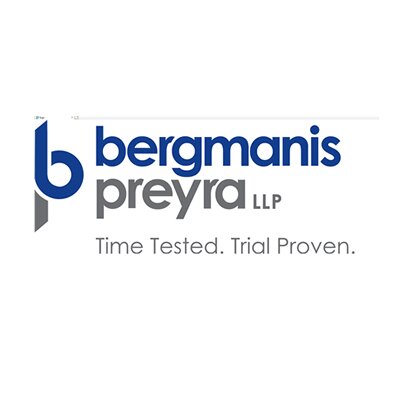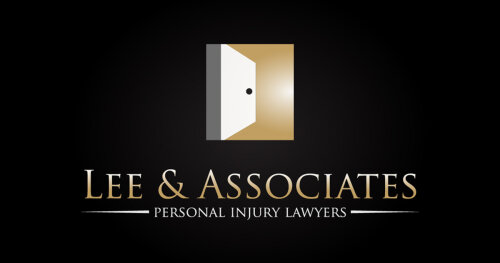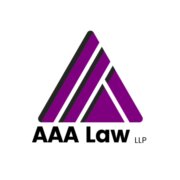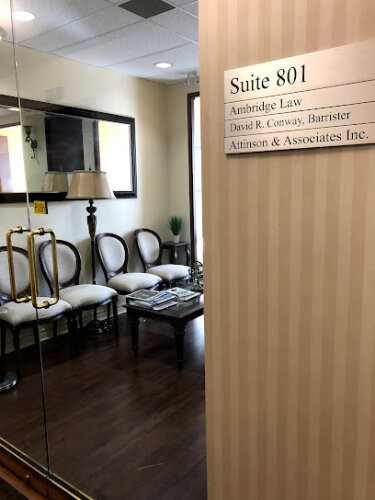Best Defamation Lawyers in Toronto
Share your needs with us, get contacted by law firms.
Free. Takes 2 min.
List of the best lawyers in Toronto, Canada
About Defamation Law in Toronto, Canada:
Defamation is a legal term that refers to a communication that harms a person's reputation. In Toronto, Canada, defamation laws aim to protect individuals from false statements that could damage their reputation. There are two types of defamation: libel, which refers to written defamation, and slander, which refers to spoken defamation.
Why You May Need a Lawyer:
You may need a lawyer in defamation cases if you believe that false statements have been made about you that have damaged your reputation. A lawyer can help you understand your rights, assess the strength of your case, and guide you through the legal process. They can also help you collect evidence, draft legal documents, and represent you in court if necessary.
Local Laws Overview:
In Toronto, Canada, defamation is a civil matter, meaning that individuals can pursue legal action against those who have defamed them. To prove defamation, you must show that the statement was false, that it was communicated to a third party, and that it caused harm to your reputation. It is also important to note that there are limitations to freedom of speech when it comes to making defamatory statements.
Frequently Asked Questions:
1. What qualifies as defamation in Toronto, Canada?
Defamation in Toronto, Canada refers to any false statement that harms a person's reputation. This can include both written (libel) and spoken (slander) statements.
2. What are the potential damages in a defamation case?
In a defamation case, the potential damages can include compensation for harm to your reputation, emotional distress, and any financial losses suffered as a result of the false statements.
3. How do I prove defamation in court?
To prove defamation in court, you must demonstrate that the statement was false, that it was communicated to a third party, and that it caused harm to your reputation. It is also important to show that the statement was not protected speech under the law.
4. Can I be sued for defamation if I made a mistake?
If you made a mistake in a statement that you believed to be true, you may have a defense against a defamation claim. However, it is important to seek legal advice to understand your rights and options.
5. How long do I have to file a defamation claim in Toronto, Canada?
In Toronto, Canada, the limitation period for filing a defamation claim is typically two years from the date that the defamatory statement was made.
6. Can I be held liable for defamation for sharing someone else's statement?
If you share a defamatory statement made by someone else, you could be held liable for defamation as well. It is important to be cautious about sharing potentially harmful statements.
7. Can I settle a defamation case out of court?
Yes, defamation cases can be settled out of court through negotiation between the parties involved. A lawyer can help you negotiate a settlement that protects your rights and interests.
8. What is the role of evidence in a defamation case?
Evidence is crucial in a defamation case to prove that the statement was false, that it caused harm to your reputation, and that it was communicated to a third party. Evidence can include documents, witness testimonies, and other relevant information.
9. Can a public figure sue for defamation in Toronto, Canada?
Yes, public figures can sue for defamation in Toronto, Canada. However, they may face a higher burden of proof compared to private individuals due to the public interest in their reputation.
10. How much does it cost to hire a lawyer for a defamation case?
The cost of hiring a lawyer for a defamation case can vary depending on the complexity of the case, the lawyer's experience, and the specific circumstances. Some lawyers may offer a free initial consultation to assess your case.
Additional Resources:
If you need legal advice or assistance with a defamation case in Toronto, Canada, you can contact the Law Society of Ontario for a list of qualified lawyers in your area. You can also reach out to organizations such as the Canadian Defamation Lawyers Association for additional resources and support.
Next Steps:
If you believe that you have been a victim of defamation in Toronto, Canada, it is important to seek legal advice as soon as possible. A lawyer can help you understand your rights, assess your options, and guide you through the legal process. Contact a qualified defamation lawyer to discuss your case and determine the best course of action to protect your reputation and seek justice.
Lawzana helps you find the best lawyers and law firms in Toronto through a curated and pre-screened list of qualified legal professionals. Our platform offers rankings and detailed profiles of attorneys and law firms, allowing you to compare based on practice areas, including Defamation, experience, and client feedback.
Each profile includes a description of the firm's areas of practice, client reviews, team members and partners, year of establishment, spoken languages, office locations, contact information, social media presence, and any published articles or resources. Most firms on our platform speak English and are experienced in both local and international legal matters.
Get a quote from top-rated law firms in Toronto, Canada — quickly, securely, and without unnecessary hassle.
Disclaimer:
The information provided on this page is for general informational purposes only and does not constitute legal advice. While we strive to ensure the accuracy and relevance of the content, legal information may change over time, and interpretations of the law can vary. You should always consult with a qualified legal professional for advice specific to your situation.
We disclaim all liability for actions taken or not taken based on the content of this page. If you believe any information is incorrect or outdated, please contact us, and we will review and update it where appropriate.















